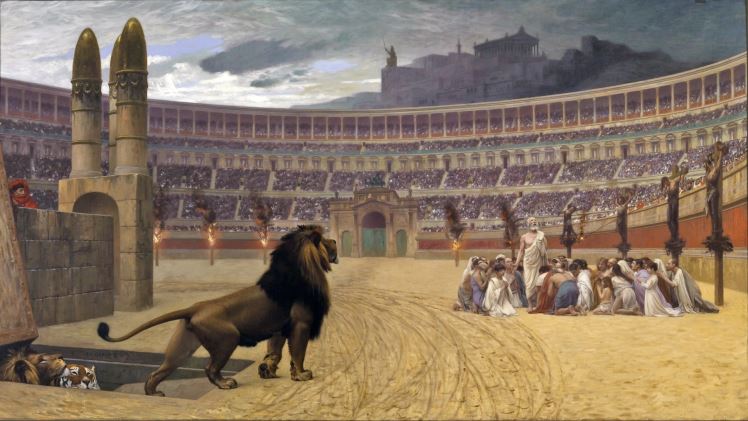A Brief History of Christian Persecution in the Early Church & the Lasting Impact

Christianity, one of the major world faiths, came into being early in the first century CE. But this trust did not come without difficulties along the way. Significant persecution experienced by the early disciples of Christ has had a lasting impact on Church history. This article examines the terrifying early experiences of Christians and the long-term effects of their persecution on the growth of Christianity.
-
The Birth of Christianity
Persecution of Christians can be traced all the way back to the beginning of the Christian faith. During its formative years, Christianity was in direct opposition to the cultural and theological norms that had been established by the Roman Empire of the time. The monotheistic and polytheistic religious landscape of the time was challenged by the exclusive nature of Christian beliefs, which were centered around the exclusivity of monotheism and the divinity of Jesus Christ. Christians were seen as outsiders since they did not participate in the traditional religious rites of the Romans, which led to feelings of suspicion and hatred.
-
The Persecutions under Roman Rule
Christians experienced sporadic bouts of persecution when they were under the rule of a number of different Roman emperors. Following the Great Fire of Rome, which occurred in the year 64 CE, Emperor Nero made Christians the scapegoat by accusing them of being the perpetrators of the destruction. The first important wave of Christian persecution emerged as a result of this, which resulted in widespread arrests, torture, and horrible killings. In the eyes of succeeding emperors, Christianity was a danger to the security of the Roman state. Thus, they continued to implement these repressive policies.
-
What is Christian Persecution
What is Christian persecution? Christian persecution is the term used to describe the systematic abuse, prejudice, and hatred aimed at people who practice Christianity. It includes a range of oppressive behaviors, such as physical harm, exclusion from social groups, and prejudice in the law. This phrase captures the hardships early Christians faced historically and offers a prism through which people might view the difficulties they overcame in the service of their faith.
-
The Price of Faith: Martyrdom
The willingness of Christians to suffer martyrdom rather than deny their religion was one of the characteristics that set apart the persecution of the early Christians. Martyrs like Saint Felicity and Saint Perpetua came to represent perseverance in the face of overwhelming hardship. The early Christians’ bravery in the face of ferocious animals and executioners in the arena encouraged and fortified the Christian community’s commitment.
-
Impact on Christian Identity
The identity and cohesiveness of the Christian community were significantly impacted by the early centuries’ ongoing persecution of Christians. The common experience of martyrdom and suffering created a deep sense of unity among Christians. Additionally, it aided in the development of a unique Christian identity marked by tenacity, fidelity, and a sense of segregation from the larger community.
-
Legal Shifts and the Edict of Milan
The Edict of Milan, proclaimed by Emperor Constantine in 313 CE, was a turning point in the history of Christianity. This historic proclamation ended state-sponsored persecution of religions by granting religious tolerance to all faiths, including Christianity. Due to their newfound freedom, Christians could now establish churches, engage in public life, and practice their faith openly without fear of retaliation.
-
Legacy of Persecution: Theological Developments
Christian theology has been permanently impacted by the persecution period. Early Christian theologians like Tertullian and Origen wrote about the difficulties their community was facing and attempted to offer rational justifications for their beliefs. Theological notions such as the suffering servant and the Church Militant surfaced when Christians attempted to reconcile their beliefs with the consequences of persecution.
Conclusion
The early history of Christian persecution, which was characterized by intense hatred and suffering, had a significant impact on how Christianity developed. In order to comprehend the long-lasting effects of persecution, it is essential to consider the fortitude of the early Christians, their steadfast adherence to faith in the face of hardship, and the ensuing legal change brought about by the Edict of Milan. The theological advancements that resulted from this era continue to have an impact on Christian philosophy and serve as a reminder to believers of the sacrifices made by their ancestors. Even though the eras of intense persecution have passed, the remembrance of these early struggles remains firmly ingrained in Christian history.




